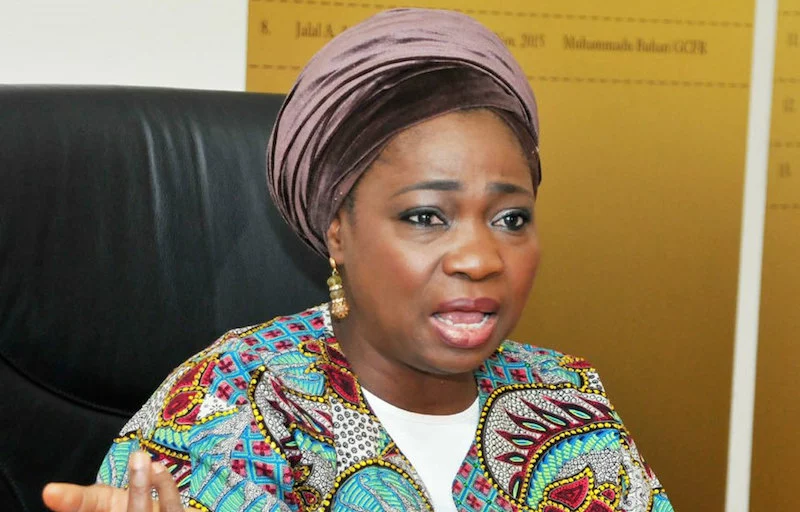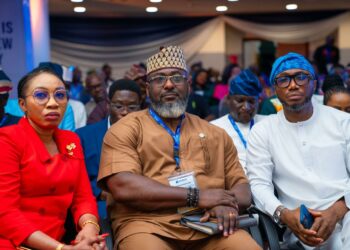The Nigerian Diaspora Summit Initiative (NDSI) in partnership with the Nigerians in Diaspora Commission (NiDCOM) held the fifth edition of the Nigeria Diaspora Investment Summit (NDIS) in Abuja recently.
The annual event, which started on Tuesday November 15 to November 17 attracted Nigerians locally and globally from all walks of life to attend the hybrid investment Summit. The focus is to exploit the expertise and technical competences of the Nigerians in the Diaspora to build indigenous technology in Nigeria.
At the opening ceremony, Abike Dabiri-Erewa, Chairman/CEO NiDCOM, represented by Engr. Dr. Sule Yakubu Bassi, Secretary to the Commission, stated that a greater degree of recognition should be accorded to the Diaspora Community, numbering over 17 million Nigerians, who have contributed over $20billion dollars in remittances to the economy in 2021.
The remittances notwithstanding the Diaspora engagement was meant to bring the technological prowess of the Nigerians in the Diaspora back home to enhance agriculture, industrialisation ICT development generally improve Nigeria’s global standing in Science Technology and Innovation.
One of the Nigerians in the Diaspora, who gave his name as Chris, said that bring home the technical competences of the Diasporas will strengthen the drive to indigenous technology in much the same way the Israelis, the Japanese and the Indians leveraged on the expertise of their Diaspora to make their nations technological hubs of the world today.
The NDIS has over the years served as a linkage between entrepreneurs and investors, home and abroad, in major business specialisations which have successfully given rise to job opportunities, economic growth and more taxable income to the federal government.
It is not only demographic but also more of an economic factor towards national development which has translated to the Diaspora Direct Investment (DDI).
The event focused on the grassroots investment and sub-national levels because of the bountiful opportunities at home and the need to build states technical capacities in technology for future growth.
Last year’s thematic focus was on Borno and Nassarawa States, while this year targets Ondo State and its plethora of viable businesses for investment.
To underscore the importance of this year’s summit Mr. Bimbo Roberts Folayan, Founder, Nigerian Diaspora Direct Investment Summit (NDDIS) who joined virtually said that the summit is a laudable project which has jointly engaged Nigerians home and abroad to develop keen attachment to the development of homeland, Nigeria.
Mr. Folayan added that trust should be a key factor in creating a conducive business and technology ecosystem.
At the closing ceremony, Abike Dabiri-Erewa, revealed assurances of Vice President Yemi Osibanjo, that the dream of having Ondo Seaport will soon be actualised.
While giving her closing remarks at the summit on Friday, Dabiri-Erewa said, “One of the major aims of the summit is to drive key investments in various local sectors of the economy.”
Minister of state for foreign affairs, Hon. Amb. Zubairu Dada, who was represented by Dr. Oludare Folowosele, described the Diaspora as a source of joy to the nation. He further assured that the ministry will continue to work closely with stakeholders to ensure championing the course of the Diaspora.
Chairman, House Committee on Diaspora Affairs, Hon. Tolulope Akande-Sadipe challenged the Diaspora to sell Nigeria as an investment destination.
“We can collaborate, those of us at home and those in the Diaspora to bring more businesses to Nigeria. We need a pathway like interpretation of the constitution so that anyone with a link to Nigeria will identify themselves as Nigerians,” he said.
Chairman, Senate Committee on Diaspora and Non-Governmental Organisations, Sen. Michael Ana-Nnachi, encouraged Diasporas to look inwards and work with the government to build a technology- based economy that will bring about a change in the fortunes of the nation.
It was a great moment of sharing ideas and networking to bring the technical expertise, competences and experiences of the Nigerians in the Diaspora. But there has to be a strategy to achieve that especially as the Diaspora Investment Trust Fund is expected to activate the integration of the modalities to boost technology and investments across the country.
The challenge however, is to streamline investment in science technology and innovation and the situation has not been pleasant in Nigeria in the last couple of years. For instance one of the major components of science technology and innovation is research for which there is hardly serious investment in the country. Nigeria currently devotes only 0.5 per cent of its GDP to research and development less the African standard of 2 per cent. This is a shortfall and cannot sustain the drive to industrialisation of the country.
It has therefore become pertinent for all and sundry to draw up a system that will enable adequate funding different from the routine budgetary provisions for the country.





